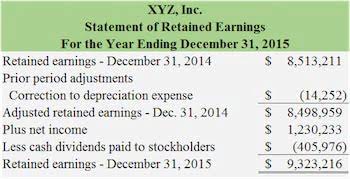
A retainer fee is an upfront sum paid to confirm the services of a professional, such as a lawyer. This fee ensures that the professional is available to work on the client’s case or project and is often used to cover initial costs or guarantee ongoing availability. It acts as a commitment from the client, reserving the professional’s time and services for future work.
Factors Influencing Retainer Fees
As such, we have created our industry-first SimpleStart™ program, providing people a chance to reduce the amount of money needed upfront to start their case. For more information please give us a call or fill out a short form online to sign up for a free consultation today! Understanding the significance of retainers can greatly enhance your experience when working with an attorney. Retainers are more than just a financial arrangement; they are foundational to establishing a successful attorney-client relationship. Here’s why retainers are crucial for ensuring commitment, effective budgeting, and building trust between you and your legal representative. If you’re entering into a retainer agreement or facing a dispute related to one, it’s advisable to consult with a professional.

Will You Have to Pay a Lawyer Retainer?
- For example, you might charge a general retainer for ongoing advisory roles, while a security retainer is typical for more specific tasks.
- In contrast, an earned retainer fee is a payment that is paid in advance by a client in order to secure the services of a lawyer that the lawyer earns upon being hired.
- When accepting retainer fees, lawyers must always follow the legal and ethical guidelines in their jurisdiction.
- At the same time, it ensures full commitment from both the firm and the client.
- Multiply your hourly rate, with tax included, by the number of hours required to get your retainer fee.
Remember, setting up retainer fees is an ongoing process, and it may require some trial and error to find the perfect balance for your practice. Regularly review your retainer fee structure to ensure that it remains competitive and aligned with your firm’s evolving needs. Consider factors such as changes in overhead costs, market trends, and client feedback to make any necessary adjustments. A willingness to adapt can enhance client satisfaction and demonstrate your commitment to providing tailored legal services. Regularly discussing Sales Forecasting the retainer terms with your clients can help identify necessary adjustments and maintain a mutually beneficial arrangement. As a lawyer, have you ever grappled with the complexities and benefits of implementing retainer fees in your practice?
What Does it Mean to Have an Attorney on Standby?
A retainer fee is the upfront cost of a service before the service has been performed. In other words, it’s a form of advance payment often required by a consultant, lawyer or freelance income statement professional. For example, a lawyer charges their client a retainer fee prior to the client using their services. A lawyer retainer fee varies widely based on factors such as the lawyer’s experience, location, and the complexity of the case. Offer to pay a retainer upfront or provide a lump-sum payment to secure a lower overall fee. Suggest a fee structure based on a sliding scale or installment plan to spread out the payments.
The scope of such retainer agreement is usually well defined and specified at the beginning of the engagement, and matters falling outside their scope will be covered by a separate fee agreement. Before discussing compensation for lawyers, however, it is crucial to recognize that the Supreme Court has emphasized that the legal practice is different from a mere business. Retainer structures for long-term counsel, litigation, or contract drafting might differ. For example, you might charge a general retainer for ongoing advisory roles, while a security retainer is typical for more specific tasks. ✔ Most personal injury lawyers work on contingency (you only pay if you win).✔ Contingency fees range from 25% to 40% of your settlement.
What To Consider Before Hiring an Attorney on Retainer
This blog will clarify what retainer fees are, why they’re important, and how they benefit both lawyers and clients. Fee-shifting statutes and rules vary from state to state, but these statutes typically require the loser in a civil lawsuit to pay for the legal fees and costs of the winning (i.e., prevailing) party. The intention behind fee-shifting statutes is to attract lawyers to public interest cases or cases involving less money that would otherwise retainers fee for lawyers not seem to be worth an attorney’s time and investment.

This is especially important in long-term or complex legal matters where the full scope of work is uncertain. By receiving a retainer upfront, lawyers can focus on the case without worrying about immediate payment. Lawyers and firms get an earned retainer fee after they have provided the service to the client.
Break Down the Legal Fees
So, come along as we demystify retainers, providing insights that will help you navigate the legal world with confidence. In the second option, an evergreen retainer clause outlines when a client must replenish funds and by how much. Once the balance hits zero, the attorney may switch to billing hourly or request another deposit. At the end of the day, customer loyalty and a client-centric brand image are more valuable than retainer realization rates. Make sure to remind the client to read the agreement carefully and what their signature would mean.

What Fits Your Legal Needs?
- This helps establish mutual trust and encourages both parties to engage fully in the legal process.
- With retainer agreements, you can encounter various types that serve different purposes and structures.
- In the context of legal representation, this concept can help both parties better understand each other’s expectations and commitments.
- In fact, there are three potential kinds of lawyer retainers you should know about.
- Before you sign, thoroughly read the retainer agreement to understand the scope of work and billing structure.
On a fundamental level, when you pay a retainer fee, those funds are often placed into a client trust account. This is a special type of bank account that is separate from the attorney’s operating funds. As such, it provides a layer of protection for your money, ensuring that it is available for your legal needs as specified in your retainer agreement. Only when the lawyer performs work that justifies the expenditure can they withdraw funds from this account.

Leave a Reply